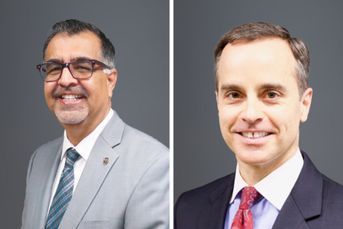Behavioral finance could make for better high-net-worth relationships

Addressing cognitive biases and self-sabotaging tendencies is key to better advice, says Cerulli.
Financial advisors should consider incorporating behavioral financial advice into their practices to better serve affluent clients, according to the latest research from Cerulli Associates.
The firm’s latest research highlighted a number of common cognitive biases that influence investment decisions, suggesting they could serve as starting points for more tailored and effective advice.
According to Cerulli, the most prevalent behavioral error among affluent investors is availability bias, affecting 88 percent, followed by confirmation bias, which impacts 78 percent.
Those two self-sabotaging tendencies could also be bedrocks for other potentially harmful cognitive quirks. “Among those investors who have strong levels of availability and confirmation bias, there also is a particularly large coincidence of both herding bias and anchoring bias,” Cerulli analyst John McKenna said in a statement.
According to Cerulli, herding bias, the tendency to follow the crowd or invest in popular trends, is notably pronounced among younger investors with less than $250,000 in investable assets. Because those individuals are more likely to use social media, they’re more plugged into the hype machine that catapults new trends into popularity.
Anchoring bias, which pairs naturally with confirmation bias, involves making decisions based on specific reference points such as a stock’s initial purchase price or its 52-week high. That mental reflex, rooted in a primal tendency to use mental shortcuts and process information as quickly as possible, could lead to poor decisions as people fixate on one baseline.
“A trusted third party that has an overall view of financial markets can help pinpoint why a client has this particular anchor point and can work that into finding long-term solutions for their investing needs,” McKenna said.
Technology has played an increasingly crucial role in behavioral coaching, Cerulli noted, as they help advisors better understand their clients’ risk tolerances and financial priorities during the initial discovery process.
Holistic financial planning, coupled with technological solutions, can help advisors deepen their relationships with clients as they probe clients’ conscious and subconscious attitudes toward money.
“While such tools do not dismiss or seek to cure behavioral biases, they may assist advisors in tailoring their advice toward respecting these biases and ensuring they can approach clients in a respectful, healthy manner while also creating a portfolio that is sustainable in the long term,” McKenna said.
Learn more about reprints and licensing for this article.








